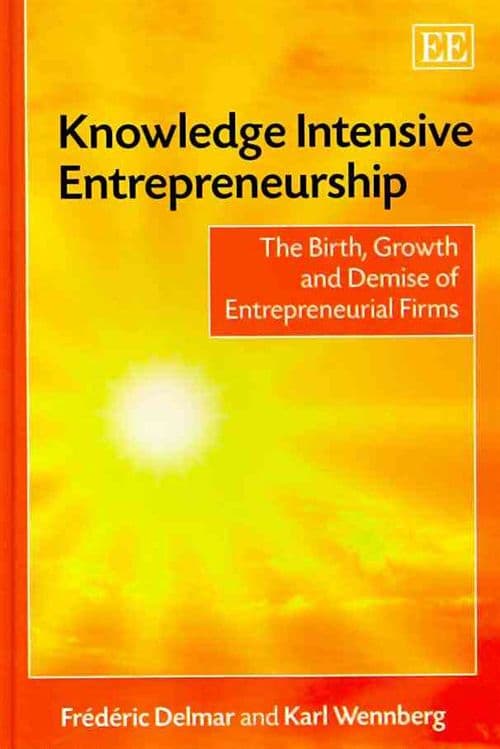Knowledge Intensive Entrepreneurship
Delmar, F. & Wennberg, K. (2010). Knowledge Intensive Entrepreneurship – The Birth, Growth and Demise of Entrepreneurial Firms. Cheltenham, UK: Edward Elgar.

Description
‘Knowledge Intensive Entrepreneurship taps into a growing trend of entrepreneurship research which recognises that not all start-ups are the same – and specifically that knowledge-intensive firms are important drivers of economic development. By focusing on the birth, growth and exit of knowledge-intensive firms, this book is a valuable addition to the literature which should be of vital interest to scholars and policy-makers alike.’
– Simon C. Parker, The University of Western Ontario, Canada


